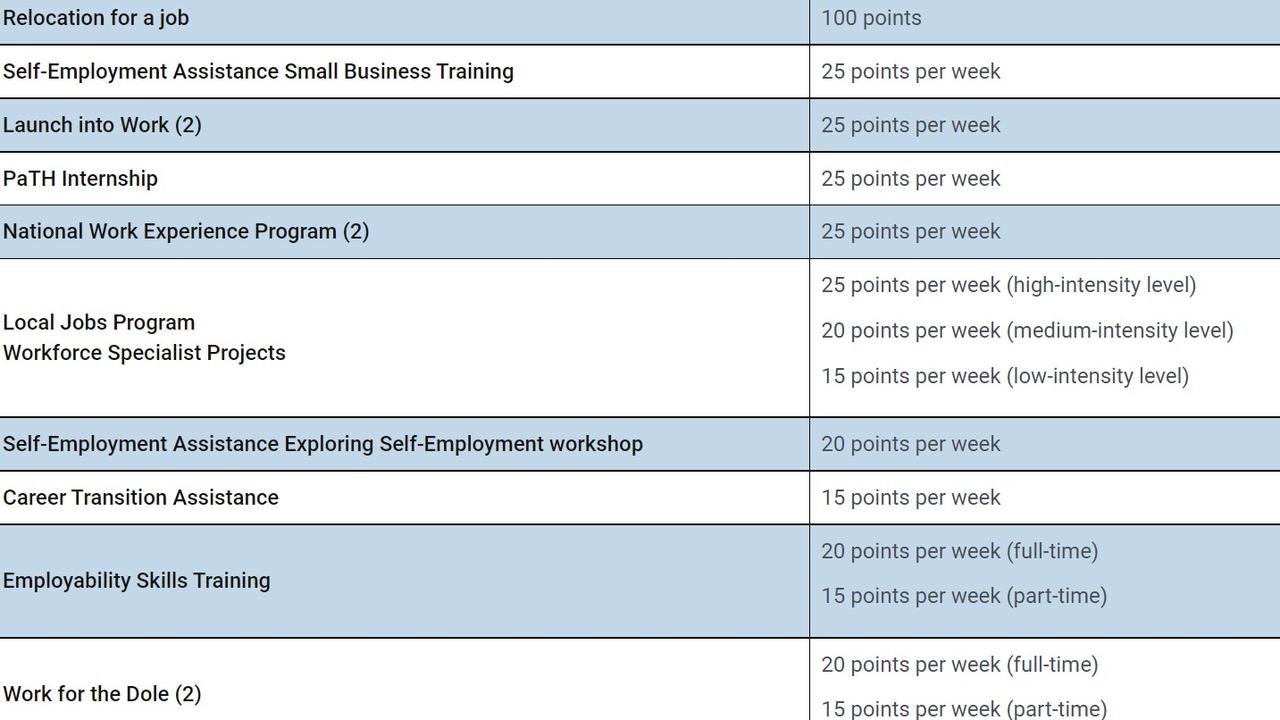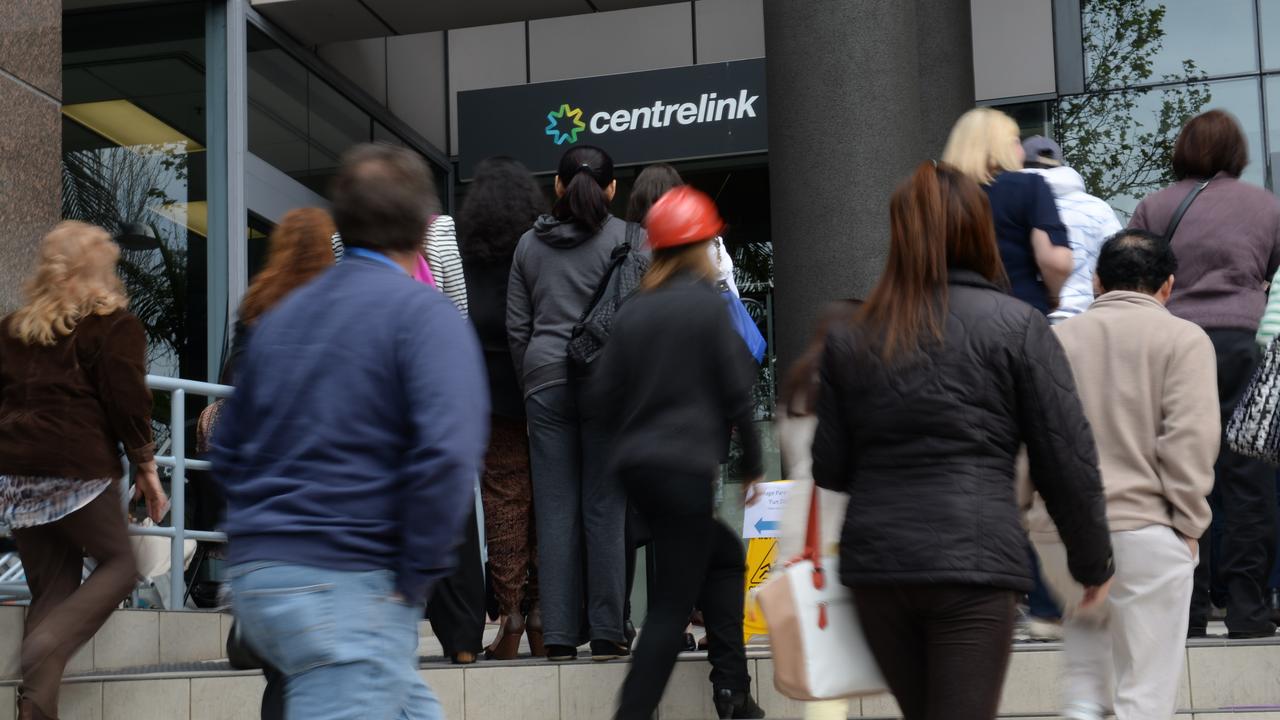An impending change to Centrelink has been described as “the Hunger Games crossed with Black Mirror”, with welfare recipients concerned about the potential ramifications it could have.

From July 1 the process of mutual obligations, tasks, activities, job interviews and searches a person had to complete to receive their welfare payments will be removed and replaced with the points-based activation system (PBAS).
While many are happy to see the end of the tedious mutual obligations system, there are concerns the PBAS could bring a whole new set of problems for Centrelink users.
To keep receiving their payments, welfare recipients must receive 100 points and do a minimum of five job searches each month.
There is a list of more than 30 tasks and activities that each carry their own individual points value.
But queries have been raised over the varied points value for different tasks and how it could leave some people struggling to reach the required total.
Programs like PaTH Internship, the National Work Experience Program and Launch into Work earn 25 points per week, enough to reach the 100 total.
But other activities like full-time Work for the Dole, the Adult Migrant English Program and Skills for Education and Employment are worth 20 points a week, meaning those involved need to take on extra tasks to make up the remaining 20 points.
Other activities include five points for every five hours of paid work, 20 points for attending a job interview and 10 points for being a part of the Defence Force Reserves (on a minimum of one weekend per month).
Relocating for a job is the only task that offers the full 100 points in one go.
If an individual has additional points left over after hitting their monthly 100 total, they can be banked for next month for up to half (50) of their points target.
Welfare recipients have been warned they could have their payments suspended and receive a demerit if their points target or minimum job searches are not met.

A section of the points-based activation system activities and tasks list. Picture: jobsearch
The Australian Unemployed Workers‘ Union (AUWU) said the PBAS dialled mutual obligations “up to 11” and is “the Hunger Games crossed with Black Mirror”.
“Using technology to ‘gamify’ starvation points (score them or lose your payment) is morally offensive to basic human decency,” it said in a statement.
“This is not the design of a humane welfare system – this is the design of a digital workhouse set up to brutalise people in desperate economic need and push them out of the system and onto the street.”
Concerns have also been raised about some people’s ability and capacity to reach these requirements.
The Department of Education, Skills and Employment (DESE) has advised the points target or minimum job search may be reduced based on a person’s personal circumstances.
This could also involve the value of certain tasks being increased or extra activities being created as an “activity bonus”.

Centrelink users are worried about their capacity to fulfil the points-based activation system’s requirements.
The PBAS is coming in under the DESE’s new employment service Workforce Australia, which is replacing jobactive.
Workforce Australia will include an online or in-person service for users to fulfil and report their PBAS points.
Workforce Australia Online is for “job-ready” employment seekers on income support who are able to manage their search via the DESE’ programs.
Welfare recipients who need more support will be given an employment service provider who will offer more tailored services.
But there is confusion over how these changes will play out less than a month before they come into effect.
The AUWU said it feared another “robodebt-style disaster”.
“The AUWU advocacy team is receiving a large number of reports from members telling us the system has not been properly explained to them,” advocacy co-ordinator Raquel Araya said.
“We are trying to get a handle on this system so that we can advise those reaching out, and we still do not have clarity from the department on how exactly the reporting will work, how problems will be handled or resolved and whether Centrelink has the appropriate capacity to deal with the increased call centre inquiry volume.”
The DESE said Workforce Australia was informed by “extensive collaboration” from more 1400 stakeholders, national and internal research and an “intensive user-centred design”.
